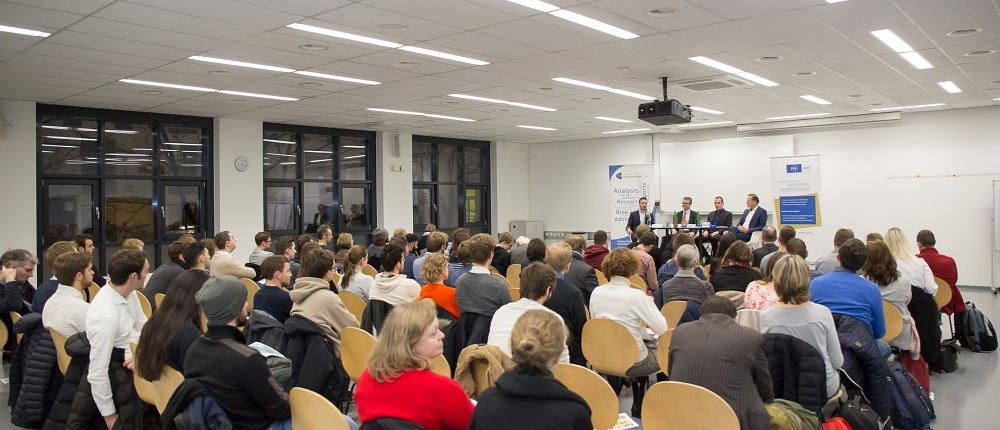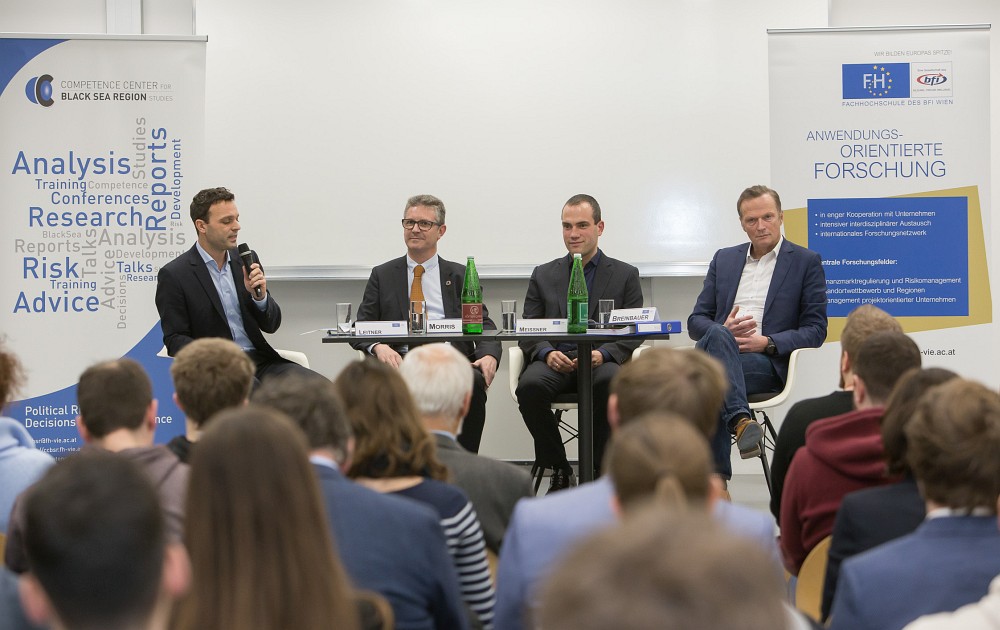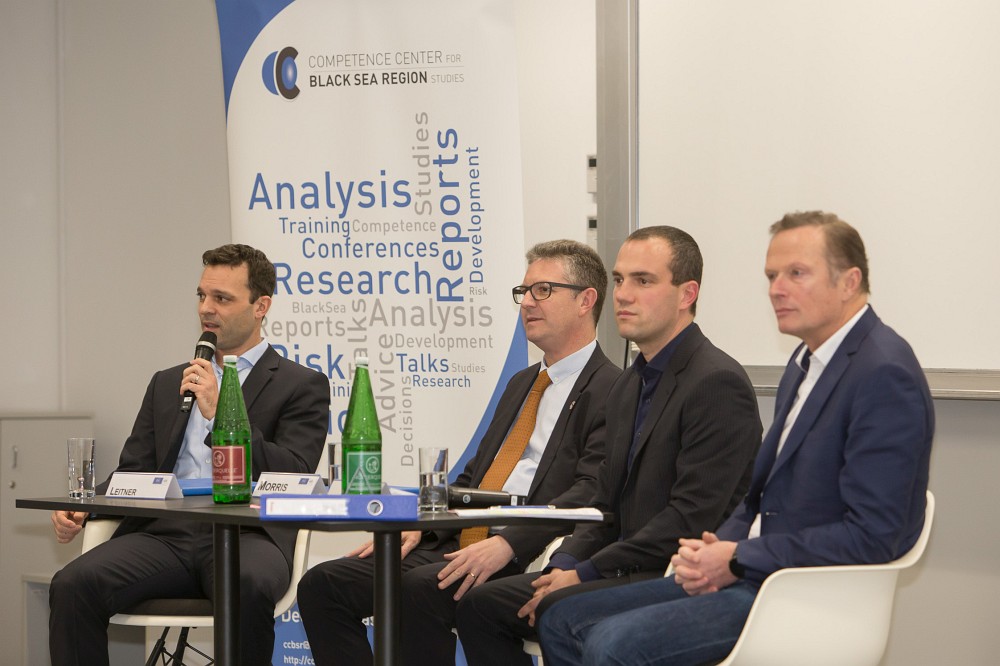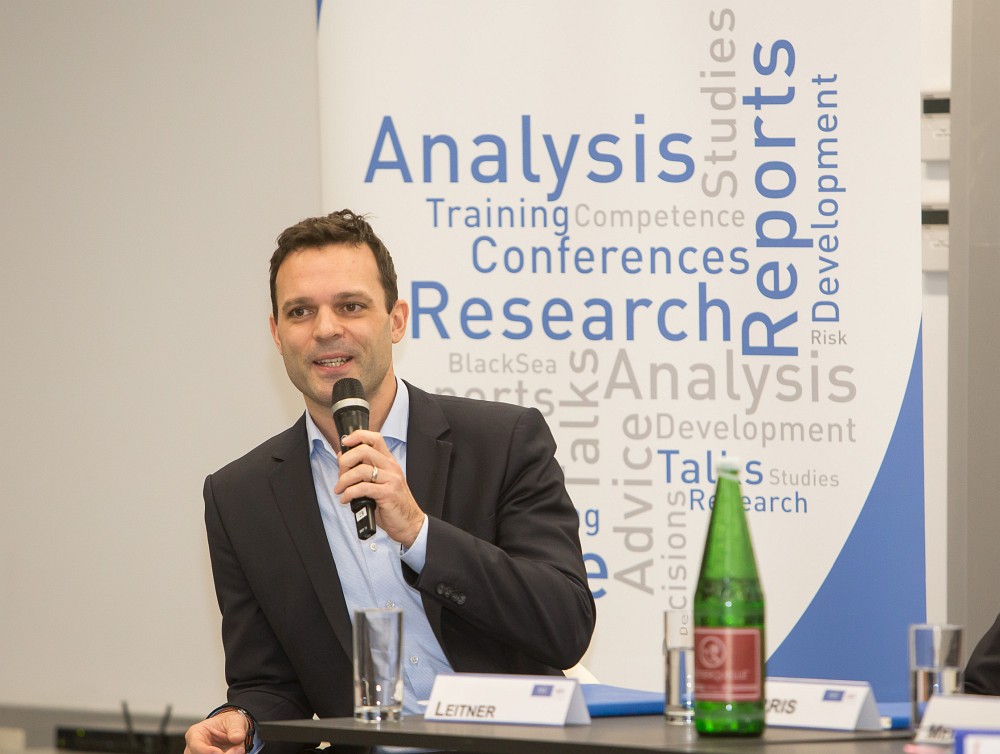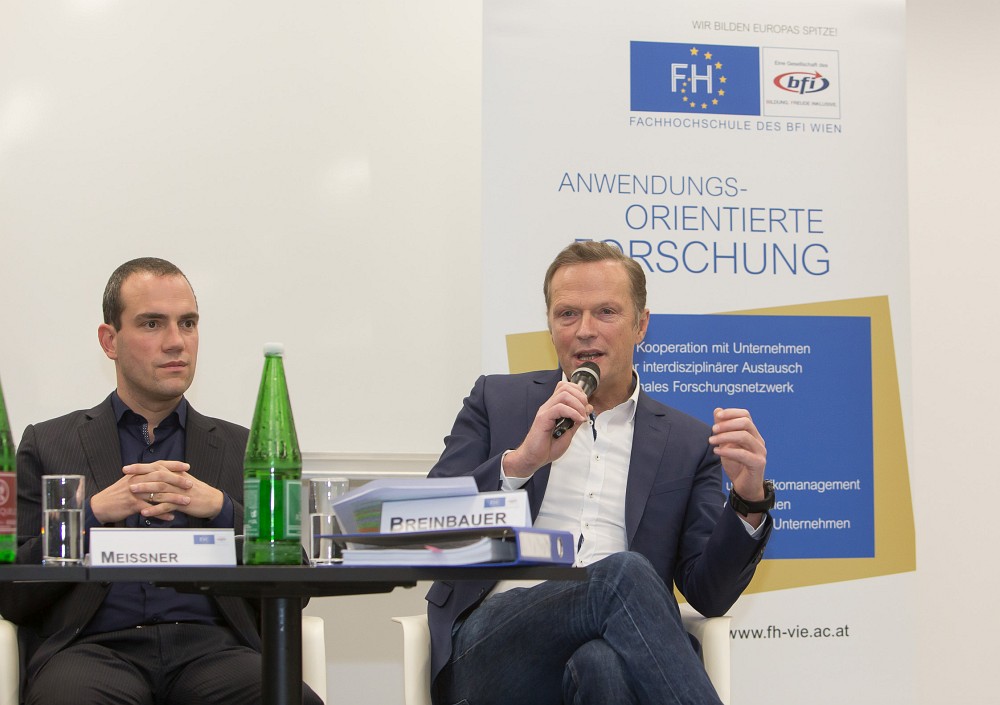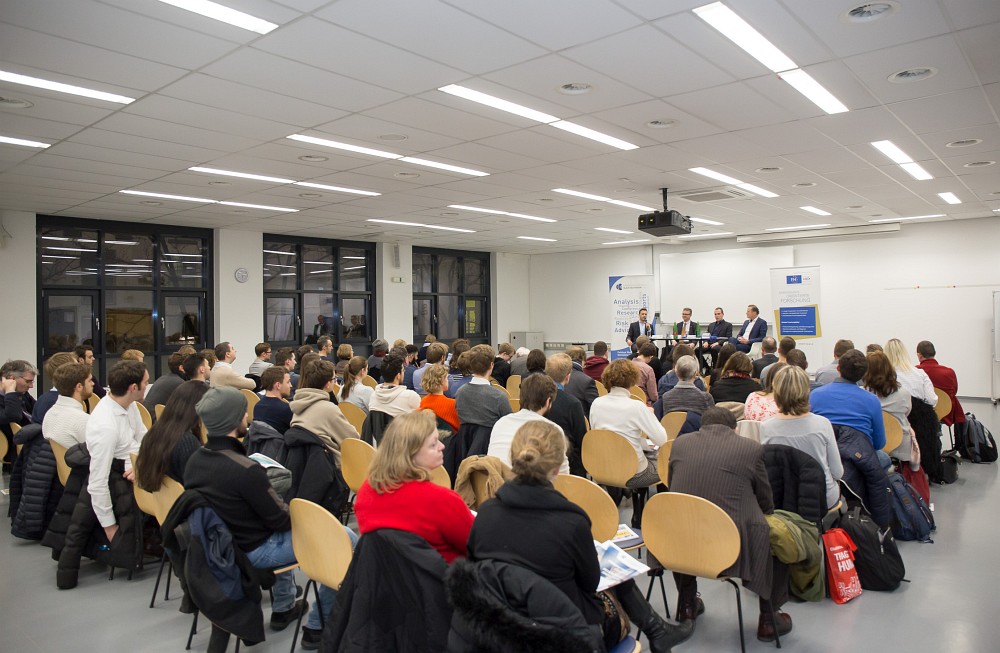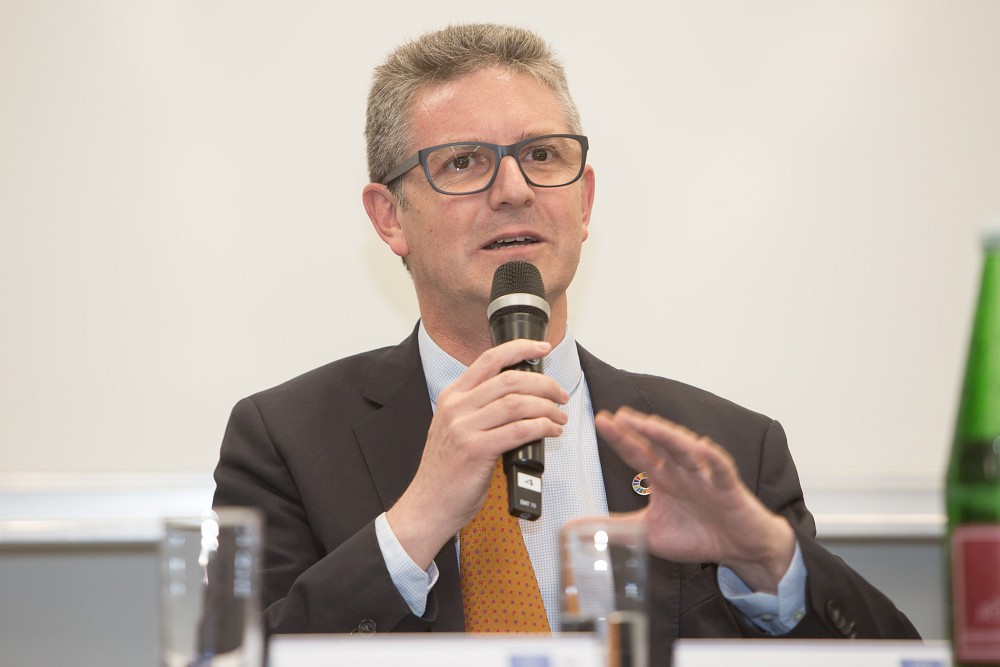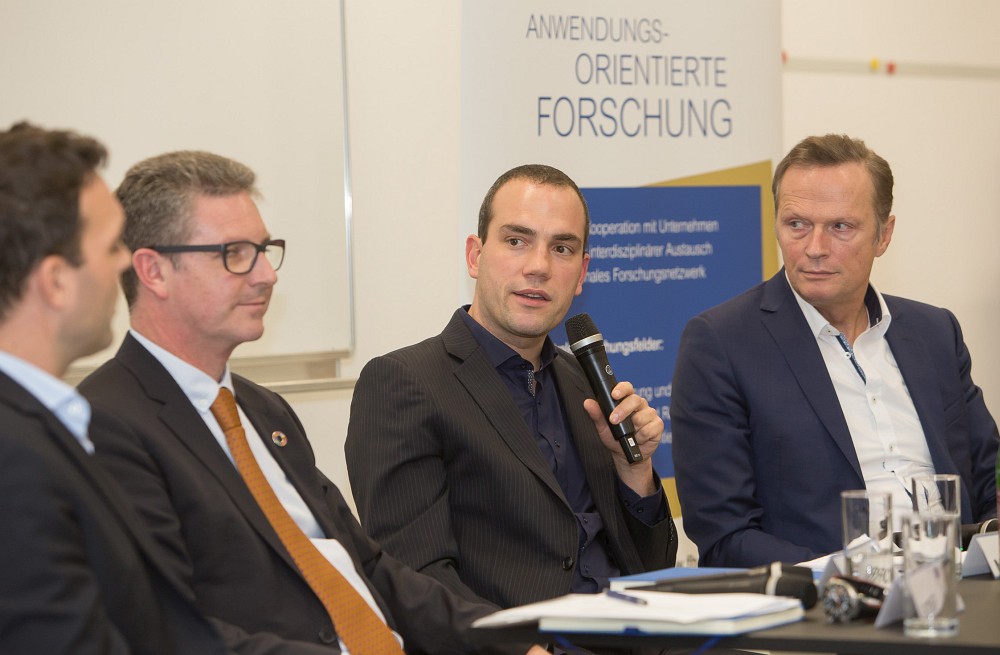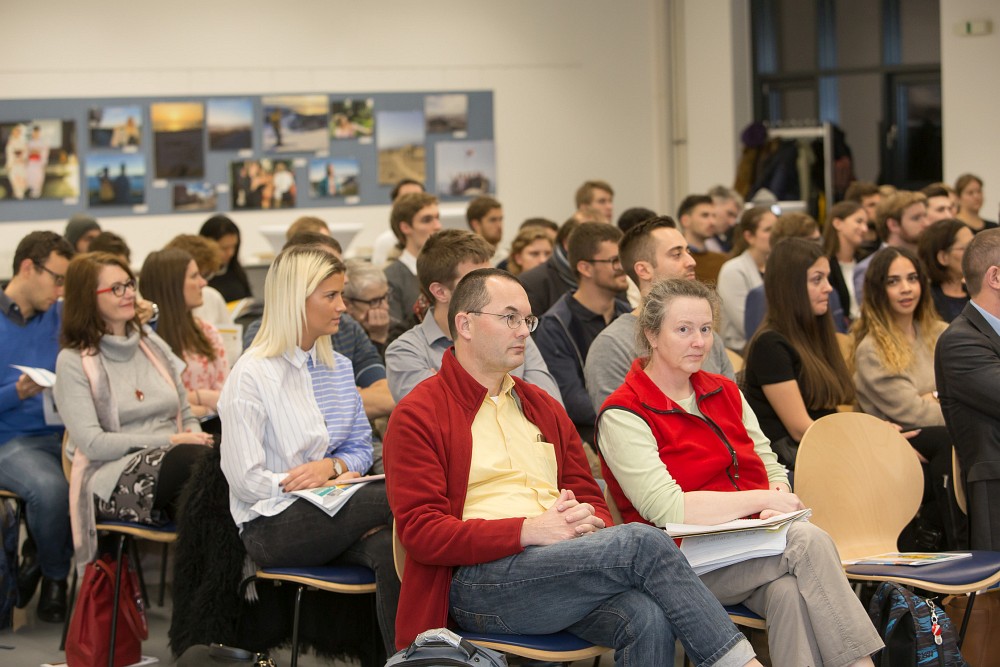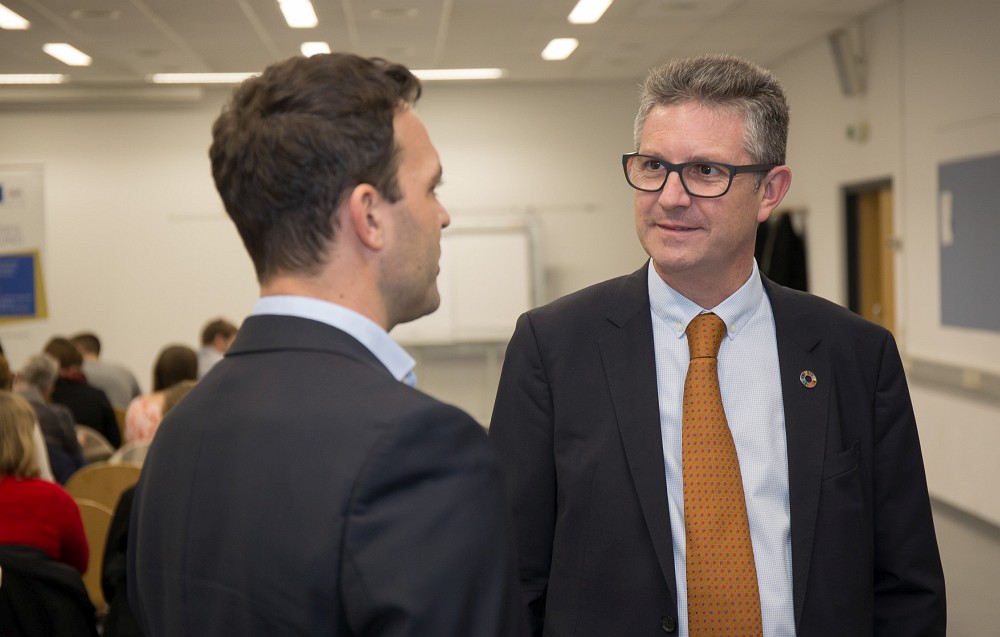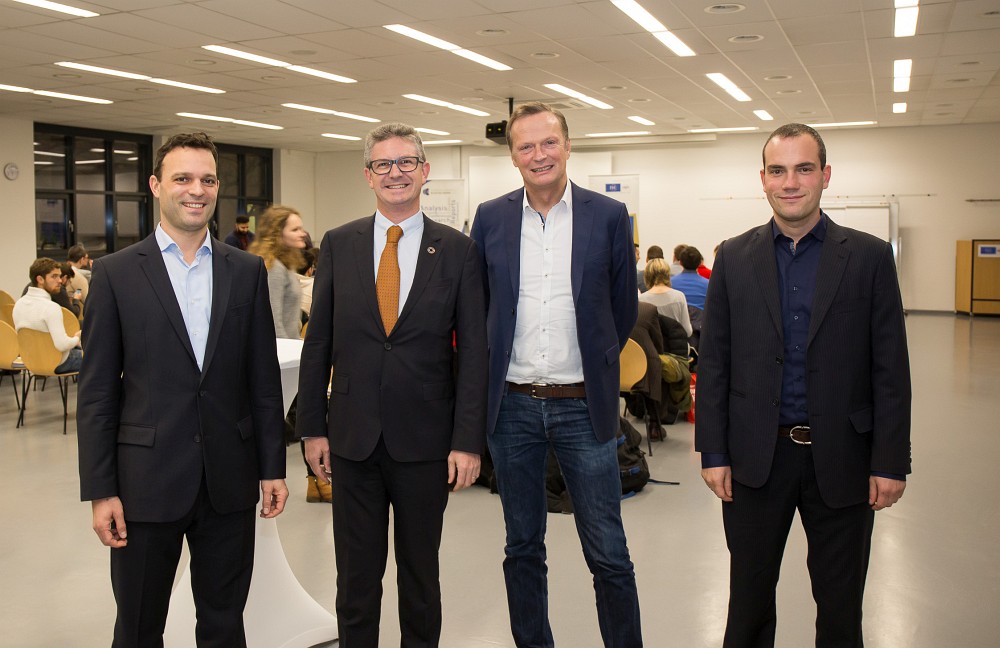Business Talk Black Sea Region dealt with Chances and Risks for European Enterprises in the course of the Belt and Road Initiative
As part of the public event series “Business Talk Black Sea Region”, the Competence Center for Black Sea Region Studies recently organised a panel discussion on the Chinese Belt and Road Initiative: “The Belt and Road Initiative. Will China take it all? What will remain for Europe along the Silk Road?“ In order to find answers to these questions, the Competence Center hosted David Morris, Chair of the United Nations Asia Pacific Business Forum 2019 and Vice-President of UN ESCAP. He discussed the topic with Prof. (FH) Dr. Andreas Breinbauer (University of Applied Sciences BFI Vienna), an expert on the Silk Road, and Dr. Hannes Meissner (University of Applied Sciences BFI Vienna), an expert on Central Asia and Political Risk Management. Dr. Johannes Leitner, Head of the Competence Center for Black Sea Region Studies, moderated the event.
„A multidimensional project with no thematic and geographical limits, and work in progress.“
The Chinese Belt and Road Initiative and the associated New Silk Road are enormous investment and infrastructure strategies of a historical dimension. Since October 2013, China has invested USD 421 billion into the 75 semi-official silk road countries. Thereof, 112 billion USD have gone into the logistics and transport sector. Given this background, Andreas Breinbauer highlighted that the Belt and Road Initiative “has become a myth that does not only catch the attention of logistic specialists”. As he also pointed out, in the public perception, the technical term is associated with infrastructure development between China and Europe. “In fact, it is much more: A multidimensional project with no thematic and geographical limits, and work in progress.”
Silk road countries are shaped by political risk
Johannes Leitner stressed the circumstance that the Silk Road Initiative is associated with a high potential for European enterprises. As it is still unclear to what degree they can finally benefit, skepticism prevails among many business representatives and European policymakers as well. In their opinion, China will be the great and sole winner. In this regard, Andreas Breinbauer stressed that it is still too early to assess whether the project will lead to a win-win situation. “However, Europe is not ready and still acts rather passively.” David Morris came to a similar conclusion: “China, as a rising power, is seeking to reassure the world it seeks to build new trade routes and to support global development, yet the Belt and Road Initiative has sparked geopolitical fears of strategic ambition, debt traps and poor business practices. Trying to assess the initiative in its early years is difficult because of the diversity of national experiences.” However, he also pointed out that “there are certainly a range of political risks to be managed, both for China and its firms in operating in complex new environments, as well as for the countries concerned and their firms.” Hannes Meissner argued similarly. The silk road countries are shaped by political risks, such as legal uncertainty, a low guarantee property rights and clientelism by ruling elites. “As a matter of fact, the Chinese investments are associated with new opportunities for European enterprises, since the countries get the basic infrastructure they desperately need. However, what remains for European enterprises along the Silk Road not only depends on China. To a very high degree, it rather depends on the question whether European enterprises are ready to take these political risks and apply appropriate political risk management tools.”
Funded by:

